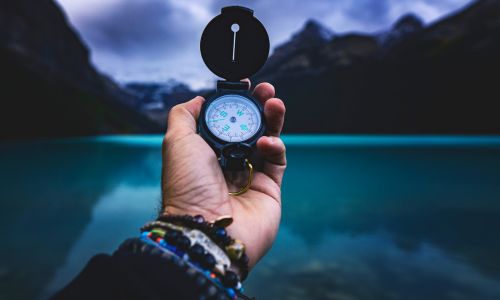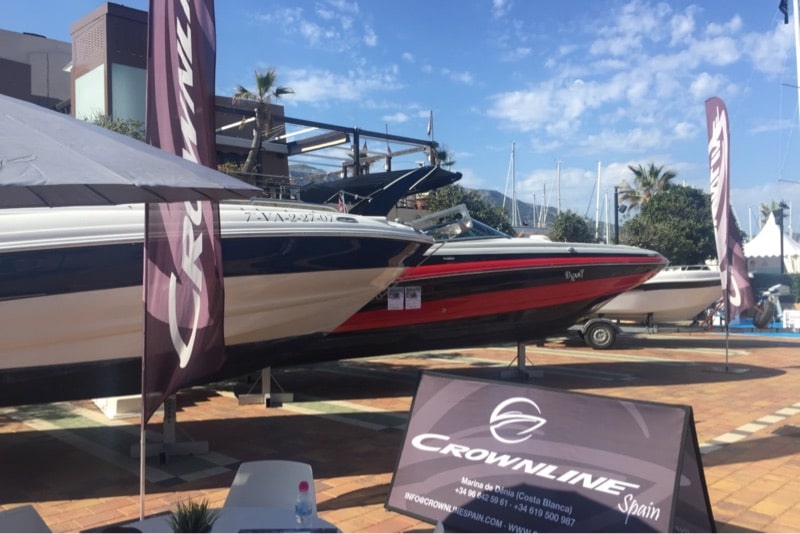Sailing tips: wisdom and experience from veterans of the sea
Sailing is not just a skill, it is an art that has been honed over the centuries. In this blog post, we will share invaluable tips and experiences from veterans of the sea, those who have braved the waves and emerged wiser. In addition, we will discuss a recent study that sheds light on the importance of experience and wisdom in sailing.
Understanding the sea: More than just waves
Reading the weather: The first rule of seamanship
Sailing begins with a thorough understanding of the weather. Veterans of the sea know that reading the weather correctly is crucial to a safe and successful voyage. It’s not just about looking at the sky and deciding to set sail; it’s about understanding weather patterns, interpreting wind and cloud signals, and knowing how these will affect the voyage. Modern technology, such as weather forecasting applications and radar systems, has made this task easier, but even so, intuition and experience play a key role. Experienced mariners can often predict changes in the weather before they become apparent, which can be the difference between smooth sailing and running into trouble on the high seas.
Respecting the sea: The mindset of an experienced seafarer
The sea is unpredictable and powerful, and experienced seafarers know this better than anyone. Respect for the sea is a mindset that every seafarer must develop. It involves understanding that, despite our experience and technology, we are still vulnerable to nature. This mentality encourages caution and preparation. It means always checking safety equipment, planning routes carefully and being prepared to change plans quickly. Veteran seafarers also understand the importance of marine conservation and sustainable shipping, recognising that the sea is not just a medium for travel, but a vital ecosystem that must be preserved.
Safety first: Lessons from practitioners
Essential safety equipment: What you should not miss on board
Safety at sea starts with the right equipment. Experienced sailors recommend always having life jackets on board for everyone, a well-stocked first aid kit, flares, a marine VHF and an EPIRB (Emergency Position Indicating Radio Beacon). In addition, it is vital to have a fire extinguisher and a lifeboat or raft. These items can make all the difference in an emergency situation. But having the equipment is not enough; knowing how to use it is crucial. That is why veterans of the sea advise regular safety training and emergency drills with the entire crew.
Emergency Protocols: Preparing for the Unexpected
Preparing for the unexpected is a golden rule in sailing. This includes having a well-established emergency plan known to everyone on board. Experienced mariners advise practising man overboard drills, shipboard fires and other emergency scenarios. Knowing maritime emergency signals, how to communicate with other ships and rescue services, and how to administer first aid are essential skills. In addition, it is important to remain calm and follow established protocol, which comes with experience and practice.
Navigation and technology: A helping hand
The evolution of navigation systems
Technology has revolutionised the way we navigate. Modern navigation systems, such as GPS and chart plotters, have made following a route easier and more accurate. Veterans of the sea, however, emphasise the importance of not relying solely on technology. Knowing how to navigate with a compass, read nautical charts and understand lighthouses and buoys is still crucial. In addition, technology can fail, so having traditional navigation skills as a back-up is vital. The combination of modern technology and traditional techniques provides the best preparation to meet the challenges of the sea.
Use of technology to the benefit of the seafarer
Using technology effectively is an art in itself. Devices such as AIS (Automatic Identification System) can significantly improve safety by providing real-time information about other vessels in the vicinity. Sonar and radar not only help with navigation, but also with fishing and underwater obstacle avoidance. Experienced mariners recommend keeping up to date with the latest technological innovations and participating in training courses to use these tools effectively. However, they always stress that technology is a complement to, not a substitute for, the skill and judgement of the navigator.
The study that changed shipping
Summary of the study: “Experience and expertise in navigation”.
A significant study in the field of maritime navigation, published in the “International Journal on Marine Navigation and Safety of Sea Transportation”, focuses on analysing the factors affecting safety in maritime navigation, especially for trainee officers. Using a maritime traffic risk model and simulation experiments, the study revealed the critical importance of maintaining adequate distances between ships as a key factor for safety. This finding underlines the relevance of experience and training in making safe decisions during navigation. This study provides valuable insight into how practical experience improves safety at sea. Read more about this study in the International Journal on Marine Navigation and Safety of Sea Transportation.
Stories from the sea: Adventures and learnings
Memorable adventures of experienced sailors
The stories of veterans of the sea are not only exciting, but also educational. From facing unforeseen storms to encounters with incredible marine life, these experiences contain valuable lessons. One captain recounted how a correct interpretation of weather signs saved him from a potentially devastating storm. Another story tells how a team managed to repair an engine failure at sea, using only the tools and resources available on board. These stories are not only testimonies of bravery and resilience, but also serve as practical lessons for sailors of all levels.
Lessons learned on the high seas
Every voyage at sea offers an opportunity to learn. A common theme in the stories of experienced sailors is the importance of preparation and adaptability. The sea is a constantly changing environment, and the ability to adapt quickly to new situations can be crucial. Another key learning is the importance of communication and teamwork. At sea, good coordination and clear communication can significantly improve the safety and efficiency of sailing. These stories and lessons are an invaluable source of wisdom for anyone interested in the art of sailing.
Practical advice for novice sailors
Getting started in navigation: A step-by-step guide
For those new to sailing, getting started can seem overwhelming. Experts advise starting with basic boating and maritime safety courses. It is essential to become familiar with nautical terms, learn the basic rules of navigation and understand how to operate a boat safely. Practising in calm waters before venturing into more challenging conditions is a good strategy. It is also vital to learn how to read nautical charts and understand basic navigation systems. Experienced sailors recommend always sailing with someone who has experience, at least for the first few trips, to learn in a practical and safe way.
Common mistakes to avoid
Mistakes are part of the learning process, but some can be dangerous in sailing. One of the most common mistakes is underestimating weather conditions or sea state. Another mistake is relying too much on technology without developing basic navigation skills. Novice sailors often do not pay enough attention to route planning and safety precautions. Ignoring safety protocols, such as not wearing enough life jackets or not checking emergency equipment, is a serious mistake. Learning from these common mistakes and taking steps to avoid them is crucial for safe and enjoyable sailing.
Preserving the marine environment
Responsible shipping and sustainability
Sustainable shipping is essential to protect the oceans and marine life. Boaters have a unique responsibility to care for the environment around them. This includes practices such as avoiding dumping waste at sea, using biodegradable products on board, and minimising noise and disturbance in sensitive areas. It is also important to be aware of the impact of anchors on seabeds and to avoid areas with coral reefs or fragile ecosystems. Veterans of the sea often lead by example, demonstrating how responsible shipping is not only possible, but also rewarding.
Impact of shipping on marine ecosystems
Shipping has a significant impact on marine ecosystems. Activities such as dredging, overfishing and pollution can seriously damage marine life and habitats. Fuel spills and emissions from boat engines are also environmental concerns. Conscientious boaters educate themselves about these issues and take steps to minimise their impact. This may include the use of cleaner fuels, proper engine maintenance to avoid leaks, and participation in ocean clean-up initiatives. Protecting the oceans is everyone’s responsibility, and boaters have a vital role to play in this effort.
Sailing is an enriching activity that offers adventure, challenges and the opportunity to connect with nature in a unique way. The advice and experiences shared by veterans of the sea are valuable tools for anyone interested in this art. By following these tips, respecting the sea and committing to safe and responsible sailing, we can enjoy all that the oceans have to offer, preserving them for future generations.
In conclusion, for those who are inspired by these stories and lessons, and are considering taking the exciting step of buying a new boat, Crownline Spain offers an exceptional range of boats that combine quality, performance and style. By choosing a Crownline boat, you will not only be investing in a top quality boat, but also in an unrivalled boating experience.


